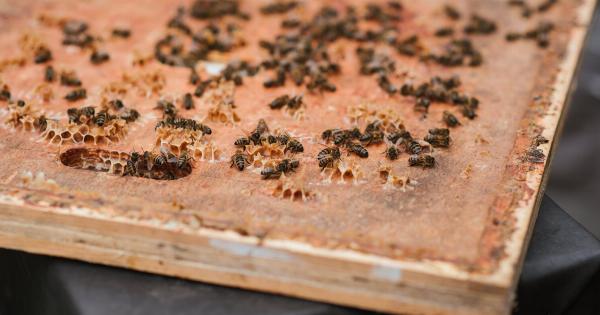Diet trends come and go, but not all diets are created equal. While some may promise quick weight loss or health benefits, others may actually be harmful to your body. Here are the top 5 diets you should avoid for your own safety:.
1. The HCG Diet
The HCG diet involves taking a hormone called human chorionic gonadotropin (HCG) to suppress appetite and promote weight loss.
This diet typically involves severely restricting calorie intake to 500-800 calories per day, while also taking HCG in the form of injections, drops, or pills.
The problem with the HCG diet is that there is no scientific evidence to support its effectiveness, and the FDA has not approved HCG for weight loss.
In addition, the extremely low calorie intake can lead to nutrient deficiencies, electrolyte imbalances, and other health problems.
2. The Alkaline Diet
The Alkaline diet is based on the idea that certain foods can affect the acidity or alkalinity of the body, and that an overly acidic diet can lead to health problems such as cancer, osteoporosis, and heart disease.
This diet recommends eating alkaline foods such as fruits, vegetables, and nuts, while avoiding acidic foods such as meat, dairy, and grains.
While it is true that the body maintains a slightly alkaline pH, there is no evidence to suggest that eating an alkaline diet has any significant health benefits.
In fact, some acidic foods such as citrus fruits and vinegar have been shown to have health benefits.
3. The Blood Type Diet
The Blood Type diet is based on the idea that your blood type determines the types of foods that are best for you.
The diet recommends different foods for each blood type, and claims that eating the wrong foods can lead to health problems such as weight gain, digestive issues, and cancer.
However, there is no scientific evidence to support the Blood Type diet, and the theory behind it has been widely criticized by experts.
In addition, the diet recommends avoiding certain foods such as grains and dairy that are important sources of nutrients.
4. The Detox Diet
The Detox diet involves eliminating certain foods or food groups from your diet in order to cleanse your body of toxins. This diet may involve fasting, juicing, or consuming only certain types of foods such as fruits and vegetables.
While it is true that the body eliminates toxins through the liver and kidneys, there is no evidence to suggest that the Detox diet is effective in removing toxins or promoting weight loss.
In addition, the diet can lead to nutrient deficiencies and other health problems if followed for an extended period of time.
5. The Ketogenic Diet
The Ketogenic diet is a high-fat, low-carbohydrate diet that is designed to put the body into a state of ketosis, where it burns fat for energy instead of carbohydrates.
This diet has been used for decades to treat epilepsy, but has recently gained popularity as a weight loss diet.
However, the Ketogenic diet is extremely restrictive and can lead to nutrient deficiencies, constipation, and other health problems.
In addition, the long-term effects of a high-fat diet on health are not yet known, and some studies have suggested that it may increase the risk of heart disease and other health problems.
If you are considering starting a new diet, it is important to do your research and consult with a healthcare professional to ensure that it is safe and effective for you.
























